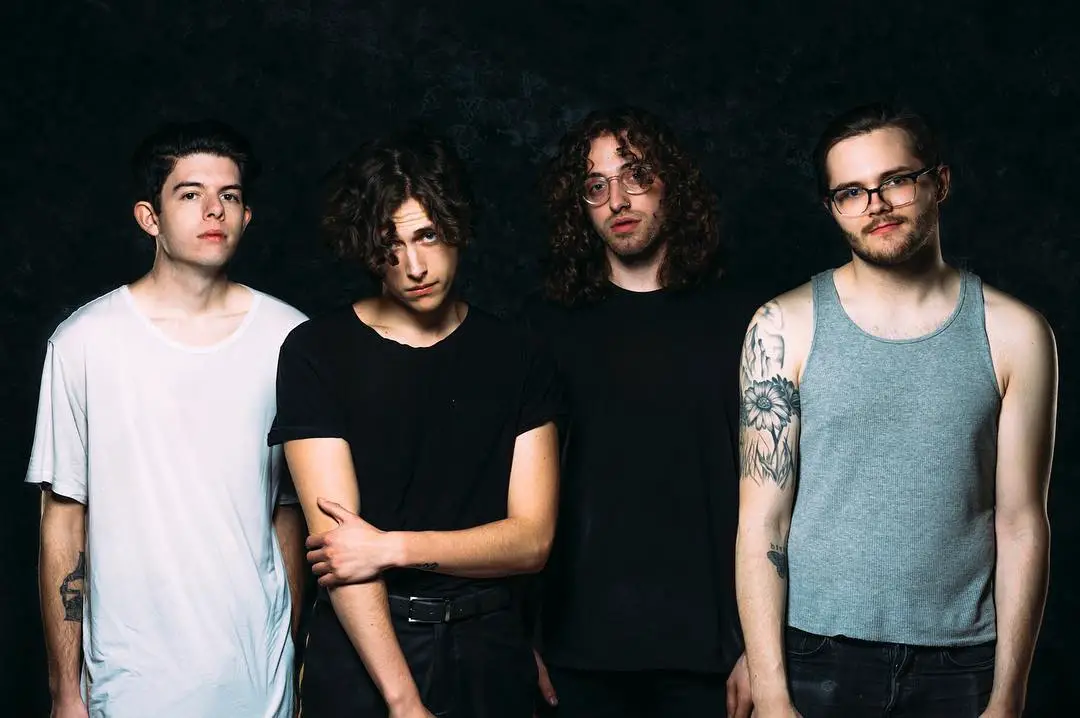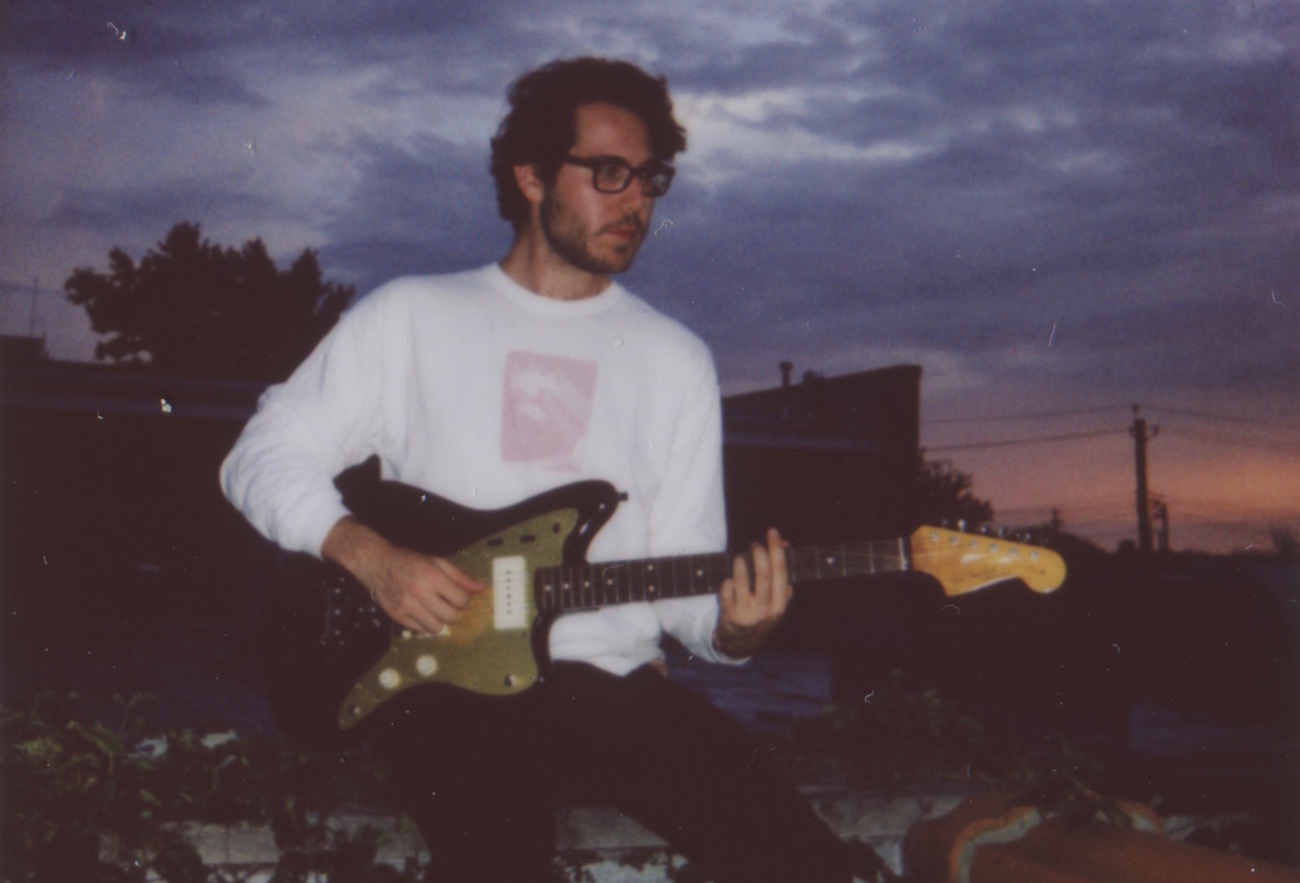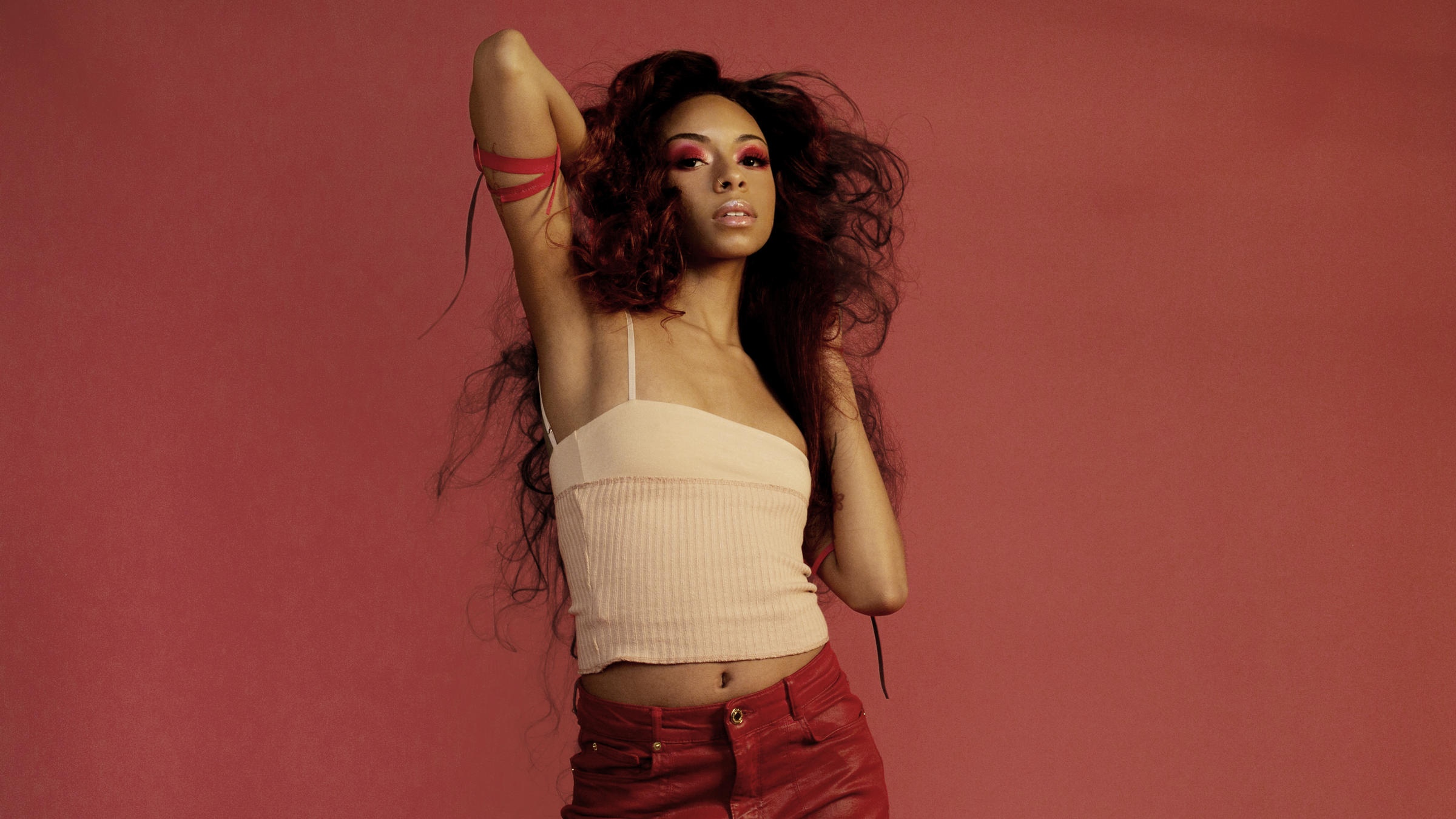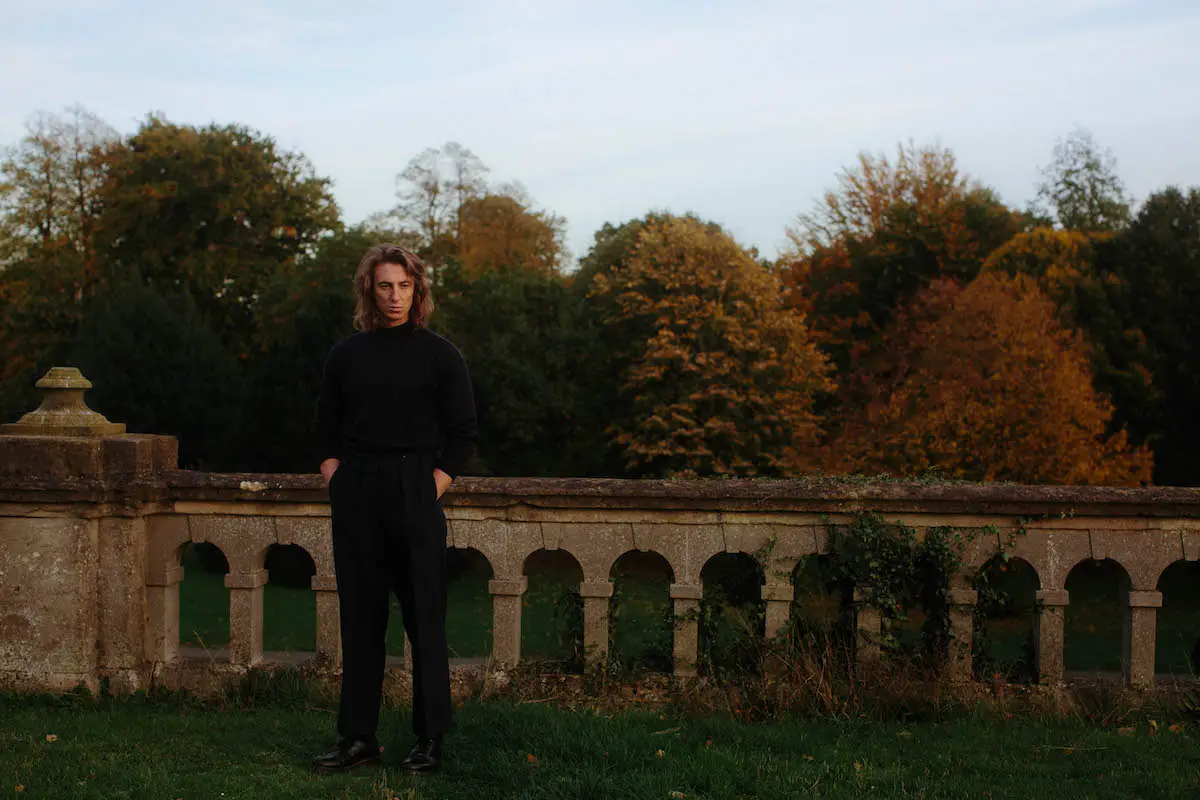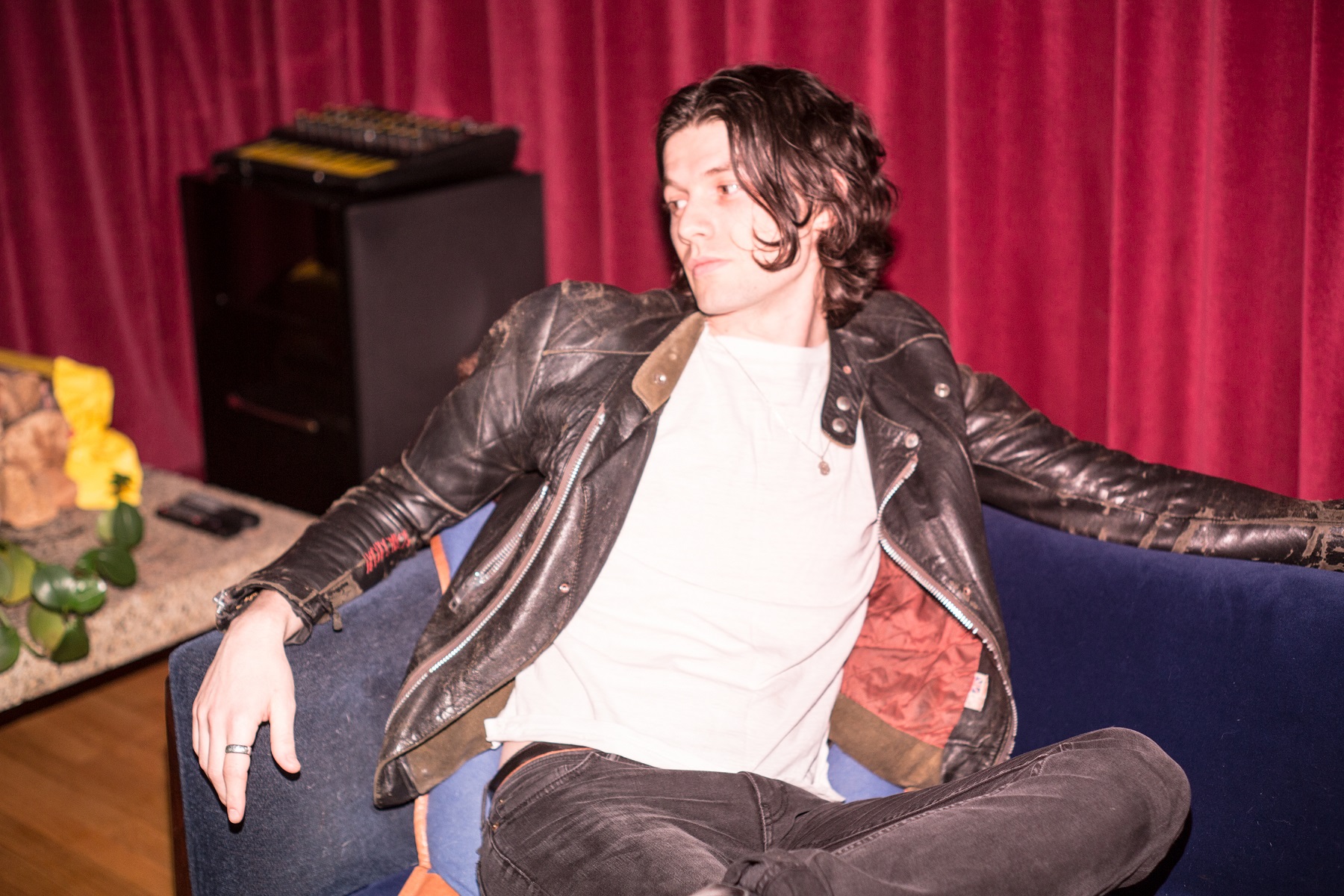From jamming in dorm rooms to taking center stage, indie pop trio Phoneboy sat down with Atwood Magazine to discuss the release of sophomore album ‘Moving Out,’ boy bands, and the anxieties of growing up.
Stream: ‘Moving Out’ – Phoneboy
Reviving 2000s pop punk with a lighter surf rock take, New Jersey based Phoneboy create vibrant soundscapes that transport you back to your days dancing around your bedroom.
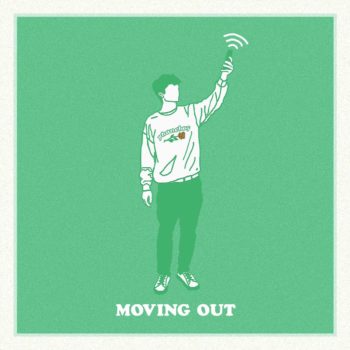
Their brand new sophomore album is as nostalgia-inducing as it is utterly enthralling: Phoneboy are taking the grunge pop from our youth, transforming the zippy guitars and screaming vocals of the era, and creating track after danceable track on Moving Out, released March 24 via AWAL. Ruminating on their adolescent years, growing up and moving out, the three piece of singers and guitarists Ricky Dana and Wyn Barnum and bassist James Fusco have channeled all of their coming-of-age anxiety into dynamic, vivid, “twenty-something” anthems.
Atwood Magazine caught up with the trio shortly before the release of Moving Out to discuss their pop punk roots, the importance of band chemistry, and the plights of being a “twenty-something.”
— —
:: stream/purchase Phoneboy here ::
A CONVERSATION WITH PHONEBOY
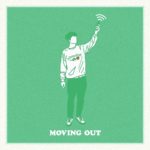
Atwood Magazine: How did Phoneboy come to be?
Ricky Dana: So, about a week in college, we both went to Stevens in Hoboken, me and Wyn. Wyn saw me walking down the street with my guitar, he’s like, “Hey, you play guitar? I said, “Yeah, I play guitar.” And we started talking about music and talked about jamming. Then it’s a whole semester for us to actually get together and start hanging out and playing some music. And I realized that Wyn was significantly better than me at playing guitar.
Wyn Barnum: Ah don’t make me blush! And then James and I, we’ve known each other since we were like eleven years old. We played in bands together. And
James Fusco: We grew up in the San Francisco Bay Area, in California. And it just so happened that I went to school close enough to these two, to make the band happen.
Was there a particular moment that snapped for you guys that the three of you are Phoneboy?
Dana: I think it was the moment that James rapped Nicki Minaj’s verse in “Monster” that’s when I knew, personally.
Fusco: Along with Jordan, longtime keyboardist, Jordan Torres. Iit was the first time we met each other and the first time I had met Ricky. And we were having a party and the song came on. And I wasn’t really aware that Jordan and I shared that sort of ability, but we locked eyes. And it just happened. I think Ricky was like, “Oh, wow, he passed the vibe check.”
Dana: And then within that month or something, we had to name the band. Because before Phoneboy we were called Wyn and Ricky which was horrible. That was pretty bad, it’s a dog shit name. So our buddy Luis was like why don’t you call it Phoneboy, because we’d been using that word for a while. Wyn made it up because I would zone out and look at my phone all the time and completely dismiss conversation. And one day Wyn was like, “Get off your phone, you phone boy.” And everyone was like, “Yeah, you phone boy!” And that’s how it happened.
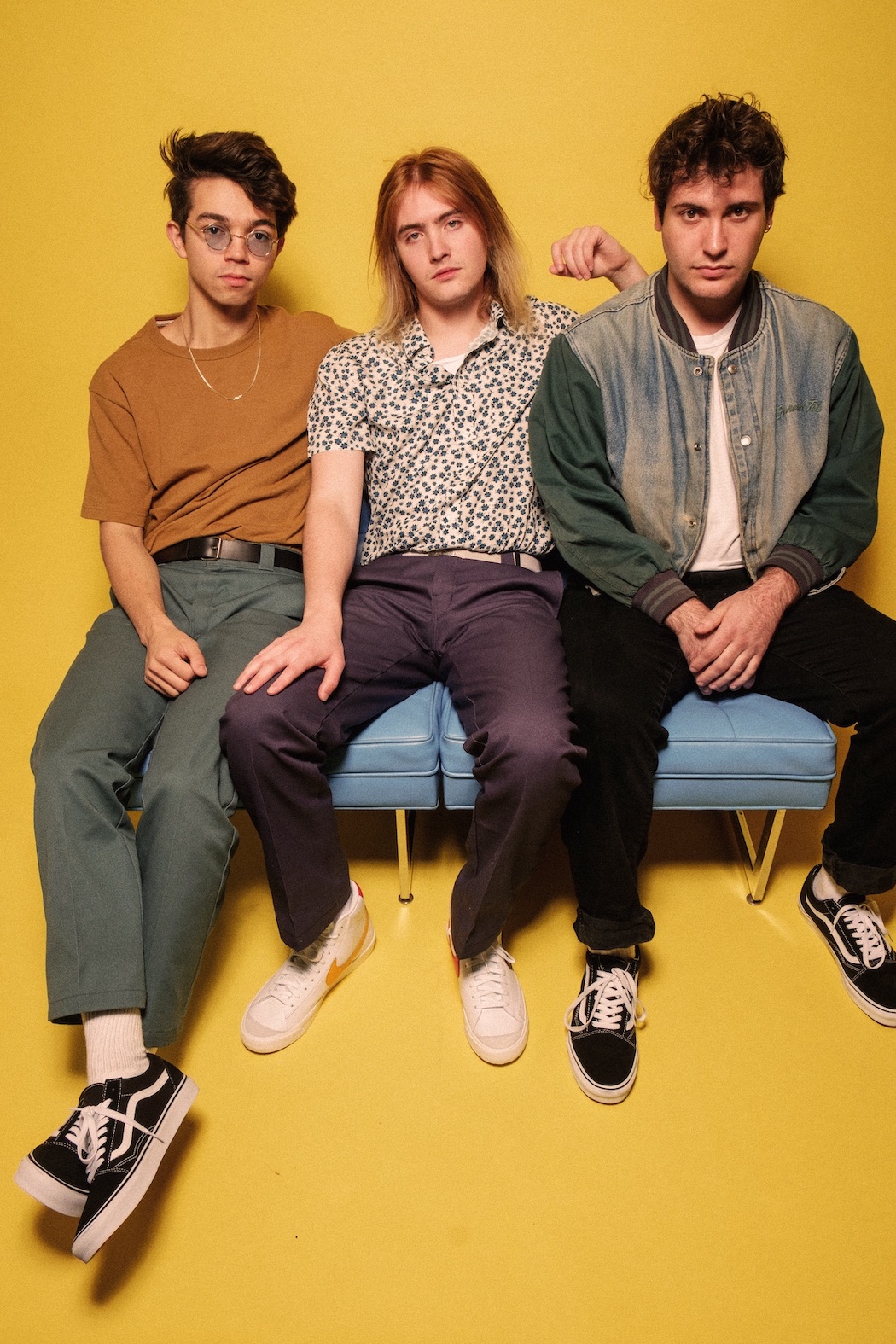
Magical! Have you guys ever returned to Monster by Nicki Minaj as a communal experience?
Dana: In the tour van, maybe?
Barnum: It’s definitely happened a few times.
Dana: Let’s just put it like this, if it comes on we’ll skip to the Nicki Minaj verse and we won’t turn it off.
What was the soundtrack to your touring?
Barnum: James was the soundtrack?
Dana: James was our primary driver. So he was primarily aux.
Fusco: Especially in the daytime. I mean, it started off pretty normal with a lot of indie rock and pop punk. By the time we had reached the Southwest, and from then on out, it was country music. Whether that was like the current top 40, which I became quite well versed in, or some of the stuff in the 70s through the 90s, some of the more classic stuff. It was on the stereo at all hours.
Dana: All the way back to the 50s with like Marty Robbins
Fusco: Yeah, totally
Dana: The song “Big Iron” by Marty Robbins. Is probably the song. I remember, we stayed right outside of the Grand Canyon in Williams, Arizona. It’s a town of like, 1200 people. And we’re getting there at like 2am, we’re driving in real slow, and that song comes on. And it matched the scenery perfectly. It was just like, “Where are we right now?”
A little bit of everything. Moving through everything from pop punk to country, did you guys take anything from that range of genres?
Dana: We don’t know yet
Fusco: We write a lot of music inspired by pop punk. That’s usually what we would listen to. And I think we just really needed a change from that, we’d already exhausted all like our favorite bands catalogs. So it was time to switch things up.
Barnum: It fits the country better.
Fusco: Yeah you know, you’re driving through corn fields or-
Dana: Route 66.
Fusco: Or just the south and there’s a reason that that sort of music comes from there, it seems it’s just like it really made the trip. It broke up each section of this trip into a different sort of vibe. So it worked for us. But as far as taking anything from it that’s yet to be seen.
Dana: We’ll find out!
Speaking of touring, you guys just wrapped up opening for The Happy Fits. I got to see you guys in DC, it was stellar. What was the highlight of that experience?
Dana: Wyn and James got their first home town show in San Francisco.
Fusco: Yeah that was cool!
Barnum: That was the first time I was back there in like two years. Webster Hall was also sick. A lot of heads there.
Fusco: The show in New York City.
Dana: That was absolutely insane. We saw the Grand Canyon! It was beautiful.
Fusco: I shed a tear.
Dana: Yeah, James shed a tear. I remember I was like, “Why are you crying James?” He was like, “It’s just so grand.”
How was that hometown show? Was it weird returning after two years?
Barnum: A little bit, yeah.
Fusco: It was a venue that was kind of brand new. It was not a place that I had been to see music before. So it felt like I was barely even in San Francisco. It was strange. But it was great to see my folks. Wyn’s parents are in the area too, so he stayed with them and the rest of the band shacked up at my place. And it was cool to sort of show them the sights, show them around the city.
Dana: James gave me, Jordan, our keyboard, and Chris, our drummer, a tour of a lot of cool spots in the Bay Area. We went to In-n-Out which was sweet. All the local spots. We went to the headlands, which is a little trail that leads you to the top and you can see the Golden Gate Bridge and everything from this mountain
Fusco: It’s beautiful.
Dana: It was awesome. That was definitely a highlight for sure.
That's super fun. You guys had a really great stage presence, you were all just really in sync, it was exciting to watch. I was watching footage from when I went to see y’all and there’s this moment where you’re all head bangign at the exact same time. What is it about the live experience that brings that out of you all?
Fusco: I think the fans. It’s cool because The Happy Fits had done a bunch of shows in DC before so they sold out the venue. And it turned out a lot of their fans were our fans too. So it was great to have people being able to sing that stuff back to you, the lines you’d written. That was really cool. I would say just like feeding off the energy of the fans is the main thing that keeps us going on tour.
Dana: And [in contrast], sometimes you sort of lose yourself in it when you’re on stage, which is a really cool feeling as well. I feel like there are moments of songs where we all either lose it or keep in sync, if that makes sense. Like we don’t we didn’t organize like “Alright guys, at this point we’re all going to head bang.” It is just what playing it makes us do.
*Band nods in agreement*
Dana: We were looking back at old videos or like other venues. And we’ve seen exactly what you’re talking about. Like I see that I’m like, “Oh my god, it’s crazy. We all did this at the same time. I didn’t even know you were doing that.” We’re lucky enough to have a very good band chemistry. Which is nice. I feel like we all flow very well together. And we all feel the same way about the music we’re playing which is nice.
Barnum: Although I do think someday we should add some choreography into it, some real boyband shit. I think it’d be sick.
Dana: Yeah, some *NSYNC shit!
Some matching outfits?
Barnum & Dana: Yeah we used to do that.
Barnum: It was our first tour, like a seven or eight day run with The Happy Fits two years ago. We wore all white. White t-shirts and painter’s pants. It’s not really sustainable considering it’s all white.
Dana: Shit gets dirty.
Barnum: It gets really dirty really fast.
Dana: But thankfully it was only a week so it’s only we were still like cream color by the end of it.
If you were a boy band, would you still be Phoneboy?
Dana & Fusco: I think it’d be Phoneboyz.
Dana: Phoneboys to men. We’ve discussed.
What choreography would you bring in?
Dana: I want one of us to learn to do backflips. Maybe me?
Barnum: You’re saying you want to do a backflip?
Dana: I wanna do a backflip!
Barnum: I’m really practicing my cartwheels. In the front we have a driveway up and cart-wheeling a lot.
Fusco: I’m actually really worried he keeps hitting his head, he hasn’t been the same recently. [everyone laughs]
Barnum: It’s the left-y cartwheels that get me, I’m better at the right-y ones?
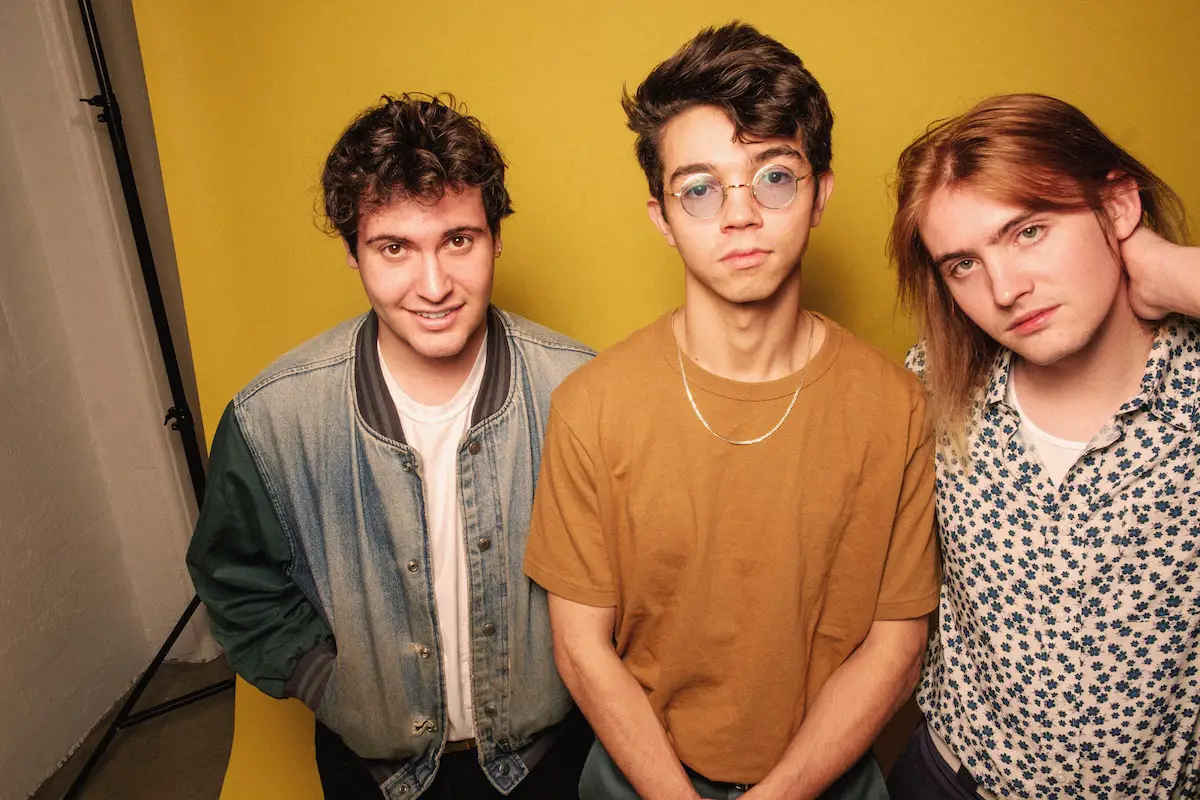
At your next live show I’ll be waiting for someone to do a backflip. I was watching a SXSW interview that you guys did a while back and you talked a lot about how you would jam in dorm rooms. How do you think that those same kids jamming in dorm rooms would react to what you guys are doing now?
Dana: A part of me wants to say that me four years ago would be absolutely shocked. But another part of me is like, when I met these two, I definitely felt like something was gonna happen. Like there was something in the air.
Dana: That’s the biggest thing for sure.
Fusco: We’d obviously still be doing it regardless of that, because it’s super fun. But it’s super exciting and surprising to meet people and see that we’ve made an impact on their lives. Or even just that they liked the music at all is super cool.
You guys now have your sophomore album coming out in like two weeks. Congratulations! It’s a stellar record and it clearly has a lot of different inspirations behind it. The seventh track, “Open Up,” has heavy pop punk influences versus “Moving Out,” which is a lot more surf rock. Where do you guys draw your major inspirations from?
Barnum: That’s awesome you say that. “Open Up” is like our favorite! We want to open on tour with it. But because it’s not a single, it’s going to be kind of tough. Because like the tour starts the same day that the album’s released, so like if we open with it, people aren’t gonna know it. Maybe later. But [inspirations wise] pop punk for sure. Blink-182 is huge. Sum 41.
Dana: Not pop punk, but The Strokes was a huge influence for us. Even early Arctic Monkeys.
Fusco: Yeah, dancier but still goes kinda hard. We try to make dancing music.
Dana: Stuff you can jump to.
I'd argue you definitely have. Phoneboy has a very early 2000s, All Time Low-esq energy to it. If you guys could collaborate with any like 2000s artist, is there one you’d gravitate toward?
Dana: Gotta be Blink-182, right?
Barnum: Yeah, but I think that’s too easy to answer because they’re just like, kind of our idols Fusco: They definitely grew up more on Blink-182, I was more into Sum 41 as a kid. Or even just some sort of rap rock. I think it would be super funny to get like a rap verse on a Phoneboy track. Like a really hard one […] like a Limp Biscuit verse. Anyone that we grew up listening to. It’d be super crazy to get recognition from.
You guys also love a good visual element, whether that’s vibrant cover art or vivid music videos. What is the process of creating visuals for your music?
Dana: I think that music is more than just one dimension. I feel like a lot of people see stuff when they hear songs. With music videos and single covers and album covers, we really just try to capture what someone would want to see when they’re listening to the song. FOr example, we were trying to think of music video ideas for “Ferrari.” And we’re with our friends in the backyard and one of our buddies, Mike De Vita, he goes “I’m listening to Ferrari and it sounds to me like a robbery.” And it does have to feel like a robbery for some reason, even though we don’t really say anything about stealing stuff in that song. But that’s something that we visualized and wanted to make into a music video.
Fusco: We also watched way too many movies, too. We are always watching movies, at least seven a week, honestly. It bleeds into how [we make] music, even soundtracks and stuff really influence how I think about our own music.
Is there a certain film soundtrack you’d love a Phoneboy track to be featured in?
Dana: A Richard Linklater movie. But honestly it doesn’t matter to me what song if someone can see something from our songs that’s like enough. You know what I mean? Like, if someone can visualize something through our music, and be inspired by it that’s just so fucking cool.
Barnum: I would say “Boyhood.” That would be sick.
Fusco: A movie about some kid growing up would make sense.
Dana: A coming of age of some sort.
Barnum: I like house party movies for our music.
What does the collaborative process look like when you guys are writing?
Barnum: Usually, someone comes to the table with some sort of idea. Not usually like a full song. Maybe just a verse or a chorus or a chord progression, or a riff.
Dana: And from there, it’ll become communal.
Was there a moment during the creation of this album that stood out?
Barnum: When we recorded the demo for “Open Up” the bridge in it. I remember we were driving up to New York City and we would just like, just keep rewinding and playing that part because we were super proud of it.
Fusco: That’s crazy that you felt that was one of your favorite songs because when we wrote it that was like, “Oh, shoot, the album’s gonna come together finally.”
Dana: For me, one of my favorite parts was recording a lot of the synthesizers for the songs. Like sometimes we would just turn the lights off just to fit the vibe and everything. It was cool, it was dreamy.
What is one track that you’re really excited to be out there?
Barnum: “Gone, Gone, Gone.”
Fusco: I’m really excited to play “Need A Friend” live. We’re working out ways to make that one epic. And make everybody sort of really feel that warmth, even if they haven’t heard it before.
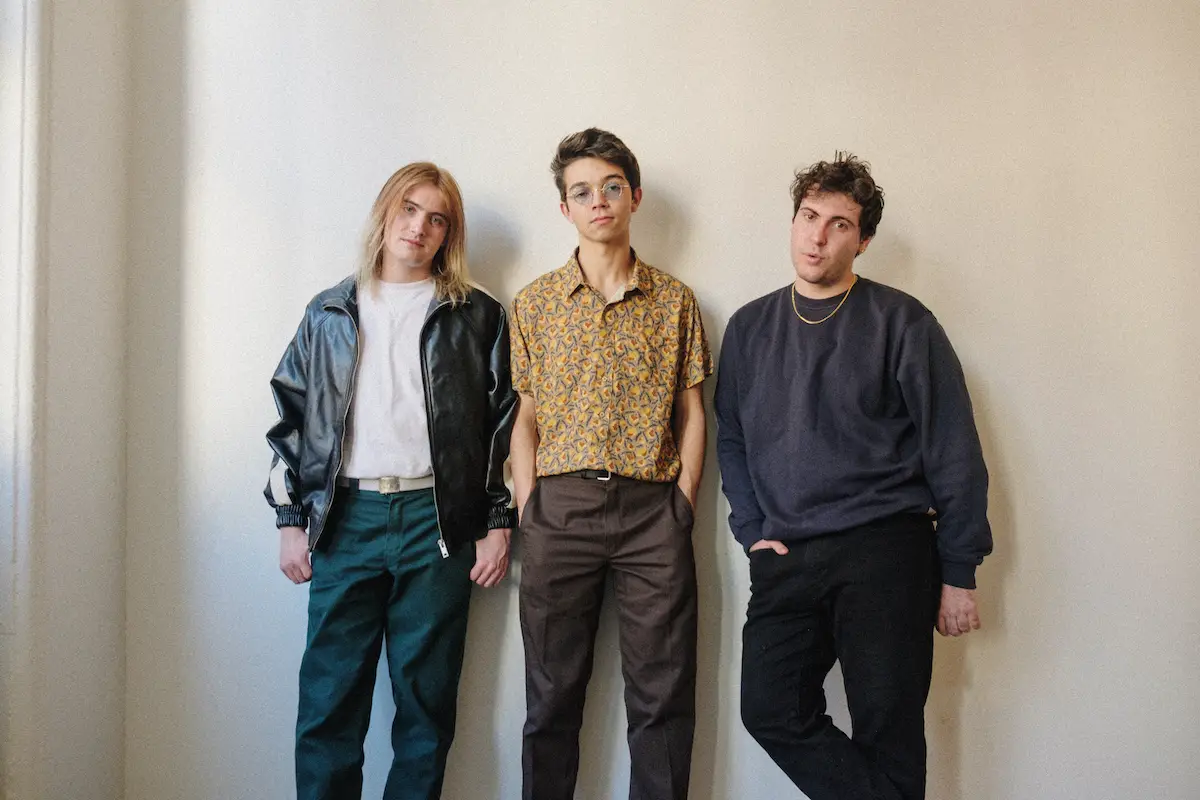
How do you guys think you have grown from the creation of your first album?
Dana: I feel like we’re a lot more structured.
Fusco: I think that the main thing that changed is that we wrote this as an album rather than-
Dana: A mixtape.
Fusco: With the first project we wrote and released a lot of the songs over the course of a couple of years as singles. And then when we finally sat down and put it together to kind of sound like a cohesive album. And we thought it came out really well. But with this one we actually sat down over the course of six months, in the studio and recorded everything in the same chunk of time. So we think it’s much more of an exact time capsule. Rather than summing up years of our lives.
Barnum: It took like three years to get all those songs together. “Acid Girl” came out in 2018 and then the full album came out in 2021. So it took a while to get there. And this one felt a lot more focused. But when it comes to writing nothing’s changed too much.
Dana: If anything, I feel like we just play off of each other better.
If this album signifies an era of your guys' lives, how would you describe that time period to somebody?
Barnum: It’s moving out of Ricky’s parents house era.
Dana: Eh?
Barnum: You don’t think so?
Dana: Yes but I think it’s more the feeling you have when you want to move out. We didn’t move out until after the album was done.
Fusco: So pop punk guys. [laughs]
Dana: It’s a pretty pop punk message.
Fusco: It’s also about anxiety about the future and the past. This was like a very anxious album quite honestly.
Dana: Yeah, definitely pretty anxiety riddled. Feeling like you’re gonna get trapped in a place and get trapped at home and not really be able to fulfill your ambitions.
Barnum: And then the anxieties that you really want to leave, but that’s also really scary. And not secure. Graduating college, ending senior year was super scary, because it felt like we were on our own more. Because in college you’re independent but-
Fusco: You’re living in a dorm paid for you.
Dana: Everyone’s in the same boat and you’re surrounded by people who are in the same boat. But then you get out of college and you’re totally not.
Barnum: Then you can do anything you want. There’s no structure.
Fusco: I mean we were also in school for things not music related. So a lot of my peers are not doing music. They’re getting jobs that make money. They’re working towards bigger goals that are more reasonable. [everyone laughs]
Dana: Yeah like a 401k.
Fusco: So there was also that whole level of doing something totally on our own. I was a math major and Ricky was in finance, so we are not doing what our friends are doing.
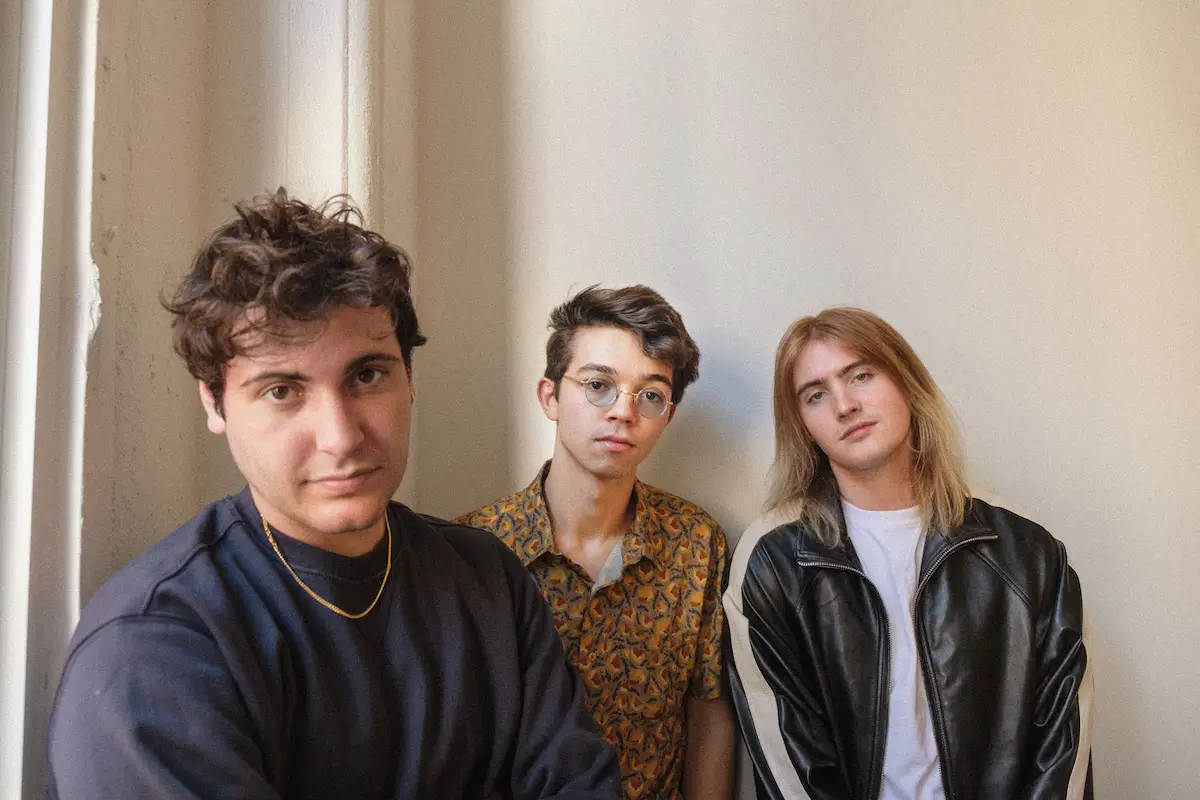
Was there a certain point during your guys' degrees that you knew that you were going to leave it for music?
Dana: Yeah, it was the moment that we made the band. Definitely.
Fusco: I think it was when we went on tour for the first time. I had a lot of friends in college that were in bands or playing some shows around the city or whatever. But the fact that we got to [tour] and people were looking for us. I was like “Oh, this is way better than math class.”
What’s coming up for Phoneboy?
Dana: The album’s coming out! And then we’re doing a tour. Both on March 24th. And then when we get back, we’re probably going to be doing a lot of writing and a lot of music video stuff. This summer we want to be as creative as possible while we have some time off. So make sure to get some tickets for our tour. It’s gonna be hella fun. And go listen to the new album “Moving Out.” We love you!
— —
:: stream/purchase Phoneboy here ::
— — — —

Connect to Phoneboy on
Facebook, Twitter, Instagram
Discover new music on Atwood Magazine
© Walter Orellana
:: Stream Phoneboy ::

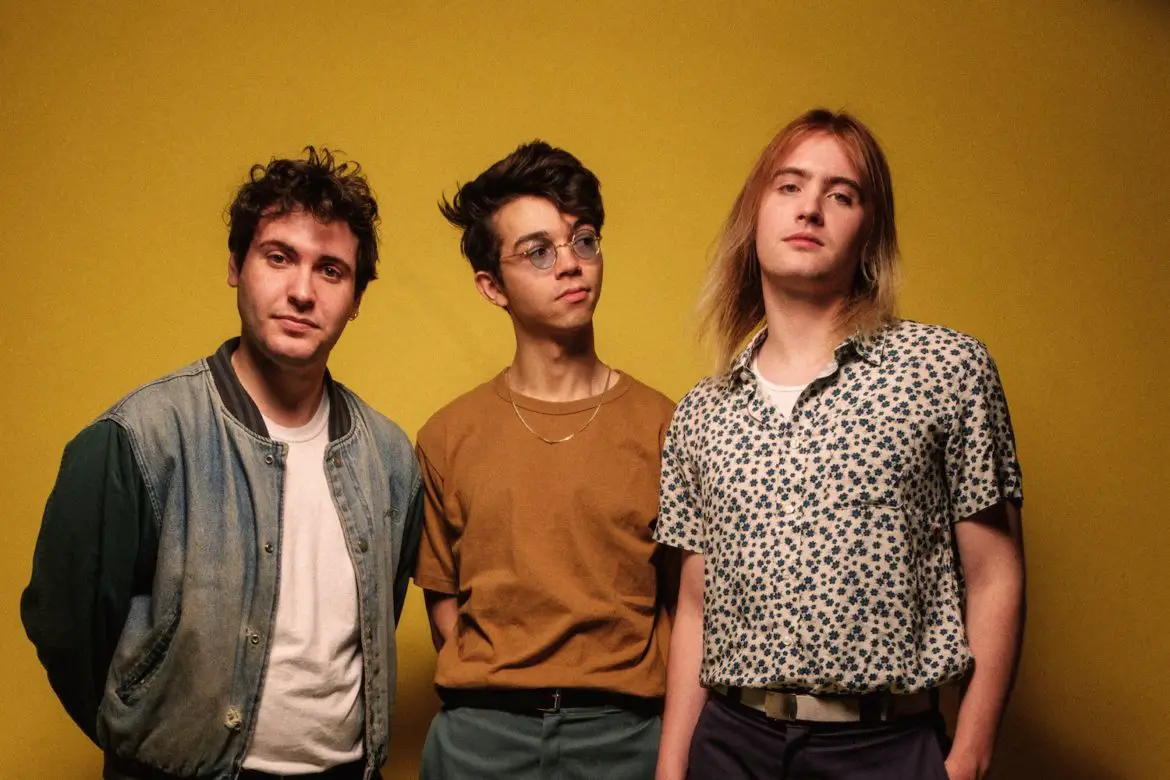
 © Walter Orellana
© Walter Orellana